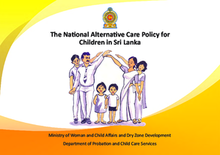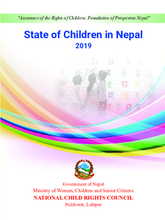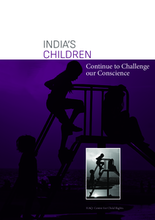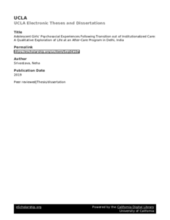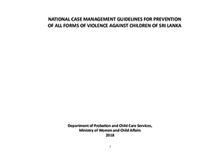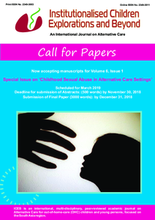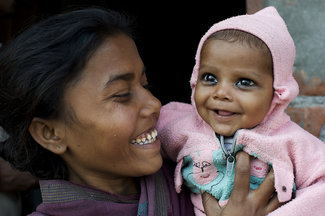

Displaying 341 - 350 of 753
Information and Communications Technologies (ICT) are increasingly, and increasingly effectively, being used in development and humanitarian work. Whereas health and education lead this use, application to child protection remains sparse and ill-understood. This paper helps address these two gaps.
Sri Lanka's National Policy on the Alternative Care of Children outlines a comprehensive range of alternative care options and encourages the reforming of all formal structures that provide at-home and out-of-home services for children deprived of care and protection or at risk of being so. This policy also extends to children under care of the Juvenile Justice System. It provides policy solutions to programming for children at risk of family separation and facing deprivations such as child abuse, neglect, child labor, poverty, addiction, imprisonment, human trafficking, mental and physical disabilities, HIV/AIDS, domestic violence, orphanhood, abandonment and displacement etc. The policy also takes into consideration and encompasses provisions to children who are forced to live and work on streets.
The national report on the State of Children in Nepal, 2019 includes child related information - Constitutional and legal provisions, policy, programmatic efforts and results in line with the implementation of the Convention on the Rights of the Child.
This Virtual Companion Tool Kit for child protection committees at the village (VCPCs) is a knowledge kit aimed at strengthening community-led child protection mechanisms.
This report, which is also the fifth in the series, reflects on how children and the realisation of their rights continue to challenge our conscience even today.
This dissertation study aimed to describe and understand adolescent girls’ subjective experiences of life in an after-care facility after transitioning out of institutionalized care in Delhi, India.
The Sri Lanka The Department of Probation and Child Care Services created this national guideline to assist with providing collaborative intervention of Child Rights Promotion Officers and all government social workers to minimize vulnerabilities that lead to violence against children.
ICEB has issued a call for papers for its upcoming special issue on ‘Child Sexual Abuse (CSA) in Alternative Care Settings,’ to be published in March 2019.
The study's objective was to determine what successful caregivers of orphaned and vulnerable children (OVC) in diverse countries do to sustain their positive mental health.
A cross-sectional comparative descriptive study was conducted among 300 children of age 6-12 years from a pediatric outpatient department of a selected hospital and 300 children from selected orphanages in Kolkata to compare the prevalence of behavioral disorders in children under parental care and out of parental care using Strengths and Difficulties Questionnaire (SDQ).

